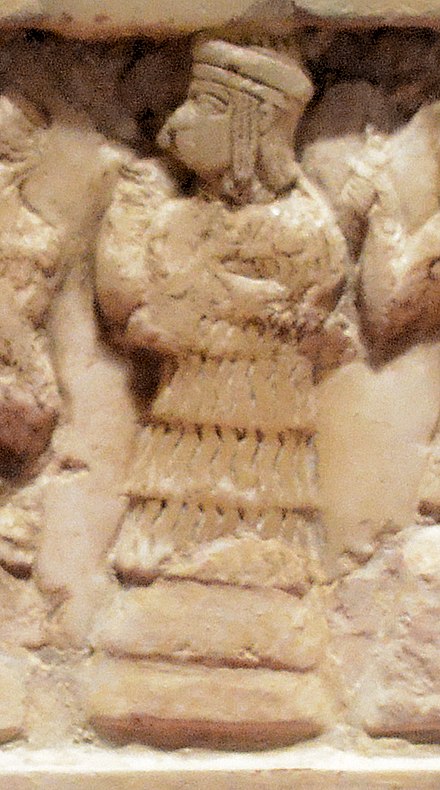Poet’s Pen: Enheduanna, the Very First Author
March 2, 2021
In the spirit of Women’s History Month and World Poetry Day, March 21, this month’s feature is dedicated to history’s first recorded author and poet, Enheduanna. She is renowned for her heartfelt hymns and epic poems glorifying the ancient gods. To share her inspiring story and to similarly glorify her legacy, this piece takes the form of a ballad with the rhyme scheme abcb.
A millennium and a half before Homer,
and another thousand years before Christ,
500 years before Abraham,
Enheduanna decided oral tradition would not suffice.
In the sand-weathered land of Sumer,
within the heart of the city of Ur,
stood the scribe Sagadu by the high priestess’ side.
For the very first time, verse to script was transferred.
The clay tablet was no friendly medium,
keeping record only of merchants’ estates.
For what reason, then, did the sapling of poetry sprout?
It began with the first emperor, Sargon the Great.
Uniting Mesopotamia was no easy task;
uniting its peoples proved even harder.
He needed common ground to bridge them together;
for this Sargon looked to his brilliant daughter.
He appointed Enheduanna to rule the highest temple,
overseeing festivals and interpreting dreams.
So to unite the Sumerians and Akkadians,
she used poetry centered in religious themes.
In forty-two hymns and three epic poems,
she took the patron deity of each major city,
bringing gods to life in a poet’s clever way:
now they felt human love, wrath, pity.
As a leader, she united Sumerian gods and people.
As an author, the first to write emotionally and use “I.”
King Sargon achieved the unity he desired,
but, alas, things would change when he died.
Along came greedy General Lugal-Ane,
who seized the opportunity to stage a coup.
For her power and influence, Enheduanna was exiled.
For a moment, it seemed her defeat was true.
She wrote to Inanna, great goddess of the moon:
“Funeral offerings were brought, as if I had never lived there.
I approached the light, but the light scorched me.
I approached the shade, but I was covered with a storm.
My honeyed mouth became scummed. Tell An about Lugal-Ane and my fate!
May An undo it for me! As soon as you tell An about it, An will release me.” (The Exaltation of Inanna lines 67-76)
She begged for release from the deserts she was doomed to roam.
Her prayers were answered by her nephew, Naram-Sin,
who quelled the uprising and restored her to her throne.
Enheduanna, among the first to achieve eternal life,
immortalized her legacy in tablets of clay.
Her works inspired psalms Hebrew and Homeric;
her style echoes yet in Christian hymns today.
So what is to be learned from the first poet, Enheduanna,
whose legacy in literature is so widely adored?
Considering her poetry did what the conqueror Sargon never could,
It is surely: “the reed stylus is mightier than the sword.”
References:
https://www.ancient.eu/Enheduanna/


Ms.MMMc • Apr 2, 2021 at 8:01 am
This is quite clever, lyrical and lovely. Thank you!
Sra Myers • Mar 2, 2021 at 5:32 pm
So interesting! Thanks for the research, the poetry, and the prose.